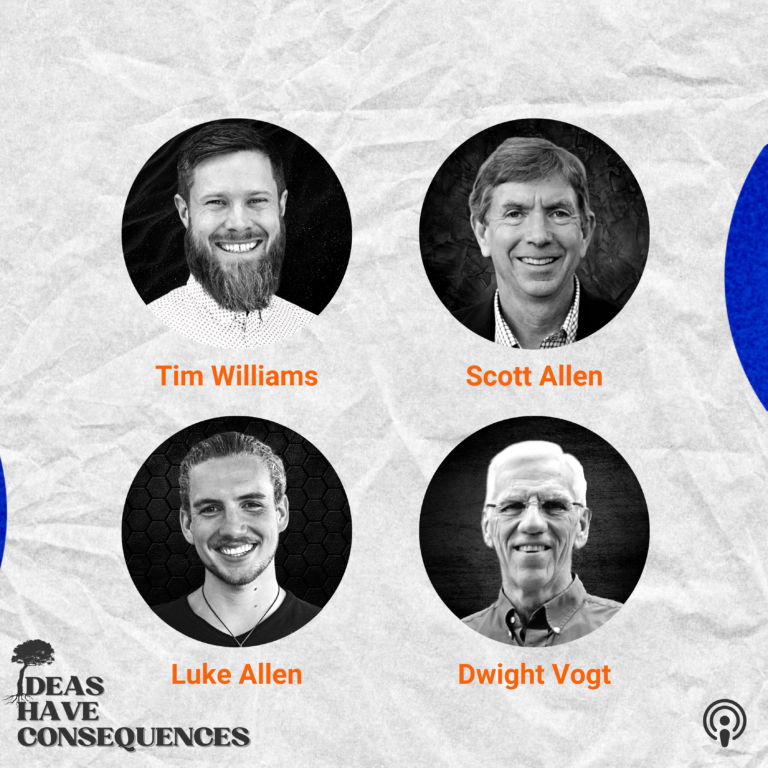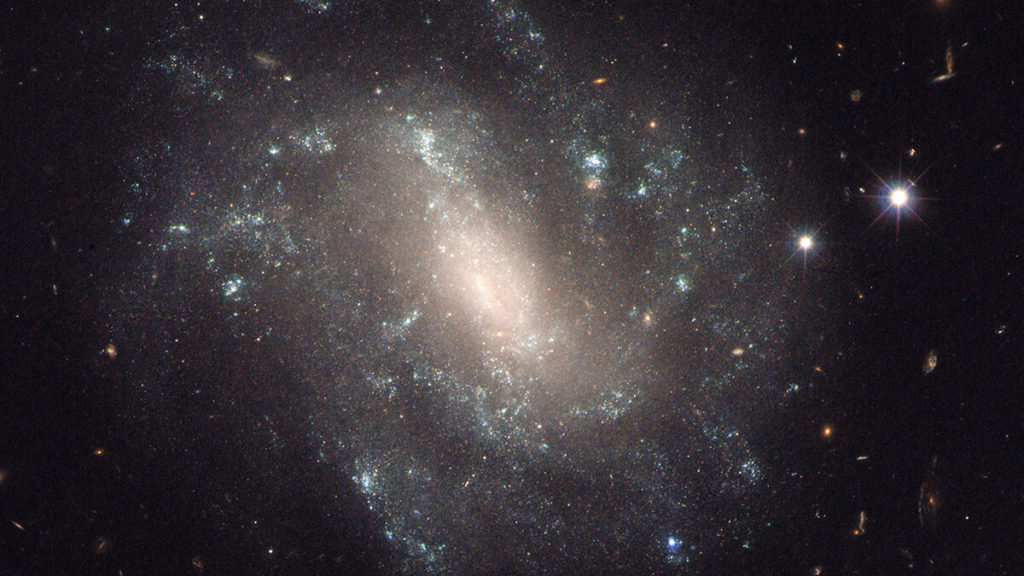At a Glance
Is Christianity opposed to science, as we often hear from teachers, professors, and the scientific elite? Or are certain core biblical principles actually at the foundation of science? Today’s discussion explores these vital questions. At its essence, science is a search for truth by means of a careful analysis of the physical universe, or what the Bible calls “the visible world.” The scientific method emerged and flourished within the soil of a Western culture deeply shaped by the Bible, and that was no accident.
Today, science has been hijacked by those committed to a secular, naturalistic worldview that has no room for God or the human soul. As a result, science is no longer a search for truth. Evidence is ignored or denied if it conflicts with the presupposition of naturalism. This is philosophy or religion masquerading as science, or what many call “scientism.” As Christians, we must oppose it and defend true science as a quest for truth, following the evidence wherever it leads.
What You'll Hear
Chapter 1: Secularism Vs. the Biblical Worldview (1:20)
- In the Western world, we are raised on a paradigm of secularism or science against Christianity, and that science is ultimately true while Christianity is a fairy-tale or should only be concerned with strictly spiritual matters.
- However, the Bible addresses not just spiritual matters but touches on everything, including science.
- While the spiritual realm and material are distinct, they also impact, influence, and touch one another in a multitude of ways, so that the two cannot be cleanly separated.
- God created and sustains both the spiritual realm and the material realm, and has sovereignty and authority over both.
- Science cannot explain or explore the spiritual realm, because it operates on a different set of rules that the scientific measure cannot explain (for example, you cannot scientifically measure love or justice).
Chapter 2: Science as a Fruit of Biblical Worldview (14:34)
- The modern conception of science was created from a society that was deeply shaped by the Bible, that being Western Europe in the 1600s.
- While we take for granted the idea of science and the ability to rigorously explore the universe through hypotheses and logic today, this idea actually came out of a biblical worldview, and then spread to other places.
- The idea that creation has constant laws that can be learned and a universe that is fundamentally ordered comes from a biblical understanding of the universe, and this is the foundation for science.
- Science relies on laws, such as the laws of physics, being stable and unchanging. Under a purely secular worldview, there is no explanation of why these laws exist or why they are stable.
- In order to do science, there needs to be objective facts and objective minds that can know truth and view reality objectively; this is something that Darwinism can’t account for.
Chapter 3: The History of Science as a Biblical Worldview (22:04)
- The early scientists that started the scientific revolution were all deeply religious and motivated by their religious beliefs to explore science.
- Scientific advancement was happening even during the “Dark Ages.”
- The Protestant Revolution helped push science even further and contributed to the Scientific Revolution.
- Because we were made in the image of God, all people, Christian or not, can do science, but they often don’t think about the basis for science, which comes from Christianity.
Chapter 4: How Science Became an Idol (30:31)
- Over time, the influence and scope of science increased until it was claimed that only science could answer all our questions.
- Science is a valuable, but limited tool, in explaining reality and the questions of life.
- Scientists increasingly rejected the idea that God created the world. Instead, they came up with alternate ideas that didn’t involve God. This allowed them to become the sole definers of reality.
- It is important to note that while science today does not take a necessarily antagonist view of God, it does view religion as subjective and private, and that science, not religion, is the final arbiter of truth.
- Science has tried to replace religion, not just as the arbiter of truth and as a worldview, but as source of meaning and purpose.
- When science tries to reach beyond its bounds, it becomes corrupted and ultimately deceiving.
- As the dominant worldview changes from modern to postmodern, science will also change and become even more corrupted.
Using the link above, you can read the transcript, listen along, and adjust the speed of the podcast while you listen.
"Good science is almost evangelistic... it points to the design; it points to the beauty and intention of God."
-Tim Williams (45:42)

Go Deeper
The Discovery Institute
“Mind, not matter, is the source and crown of creation, the wellspring of human achievement. Conceived by the ancient Hebrews, Greeks and Christians, and elaborated in the American Founding, Western culture has encouraged creativity, enabled discovery and upheld the uniqueness and dignity of human beings.
Linking religious, political, and economic liberty, the Judeo-Christian culture has established the rule of law, codified respect for human rights and conceived constitutional democracy. It has engendered development of science and technology, as well as economic creativity and innovation.
In contrast, the contemporary materialistic worldview denies the intrinsic dignity and freedom of human beings and enfeebles scientific creativity and technological innovation. Its vision of a closing circle of human possibilities on a planet of limited horizons summons instead the deadening ideologies of scarcity, conflict, mutual suspicion and despair.”
Founded in 1991 by Bruce Chapman and George Gilder, Discovery Institute is a non-profit, non-partisan organization focused on research, education, action, and cultural renewal. Headquartered in Seattle, it brings together a growing global network of scholars, scientists, and policy experts.
Return of the God Hypothesis
The New York Times bestselling author of Darwin’s Doubt presents groundbreaking scientific evidence of the existence of God, based on breakthroughs in physics, cosmology, and biology.
Meyer argues that theism — with its affirmation of a transcendent, intelligent and active creator — best explains the evidence we have concerning biological and cosmological origins. Previously Meyer refrained from attempting to answer questions about “who” might have designed life. Now he provides an evidence-based answer to perhaps the ultimate mystery of the universe. In so doing, he reveals a stunning conclusion: the data support not just the existence of an intelligent designer of some kind — but the existence of a personal God.
Delve into the book’s content with our selection of short videos, interviews, public talks, debates, and opinion articles from Dr. Meyer!
How A Chemist, An Engineer, And A Geologist Destroyed Darwin’s Warm Pond Theory
Thaxton went on to advocate for a different position, one that argued that God created life, and he used science to argue it. Along with an engineer and geologist, he wrote the book The Mystery of Life’s Origin: Reassessing Current Theories.
Three Big Ways Christianity Supported the Rise of Modern Science Explained by Historian Michael Keas
Are Christianity and science at war? Historian of science Michael Keas busts the stereotypes as he explores the historical relationship between Christianity and science, discussing three key ways Christian theology supported the development of modern science.
Dr. Keas is author of the book Unbelievable: 7 Myths about the History and Future of Science and Religion, and a senior fellow with Discovery Institute’s Center for Science & Culture.
Quotes
“I think an understanding of God, gives us the foundation for Science and an exploration of science leads us back to the worship of God.” -Tim Williams (45:24 )





What’s the historical records of science being hijacked by secularists
Thanks for this question, I pulled some responses from Luke Allen, Dwight Vogt, and Darrow Miller. Here they are:
Great question, one deserving of a much longer answer than this.
As with many shifts at the ideas level throughout history, this “hijacking” of modern science from its Christian pioners did not happen overnight and has been in process for the last few centuries. A few thinkers that have led this shift are the likes of Rousseau, followed by Nietzsche, Darwin, Draper, and today Dawkins and Tyson. Secular scientist John Draper in 1873 wrote, “Religion and Science are… absolutely incompatible; they cannot exist together…mankind must make its choice—it cannot have both.” This sentiment summarizes where most people are today.
But if your question was less about was is “hijacked” and more a question of if science was ever connected to Christianity, then I would recommend this video where historian Michael Keas shares three historical ways Christianity supported the rise of modern science (summary at 12:34). Each of these ways has been hijacked in one way or another.
Or for a great read on this exact question, check out Nancy Pearcey and Charles Thaxton’s, The Soul of Science.